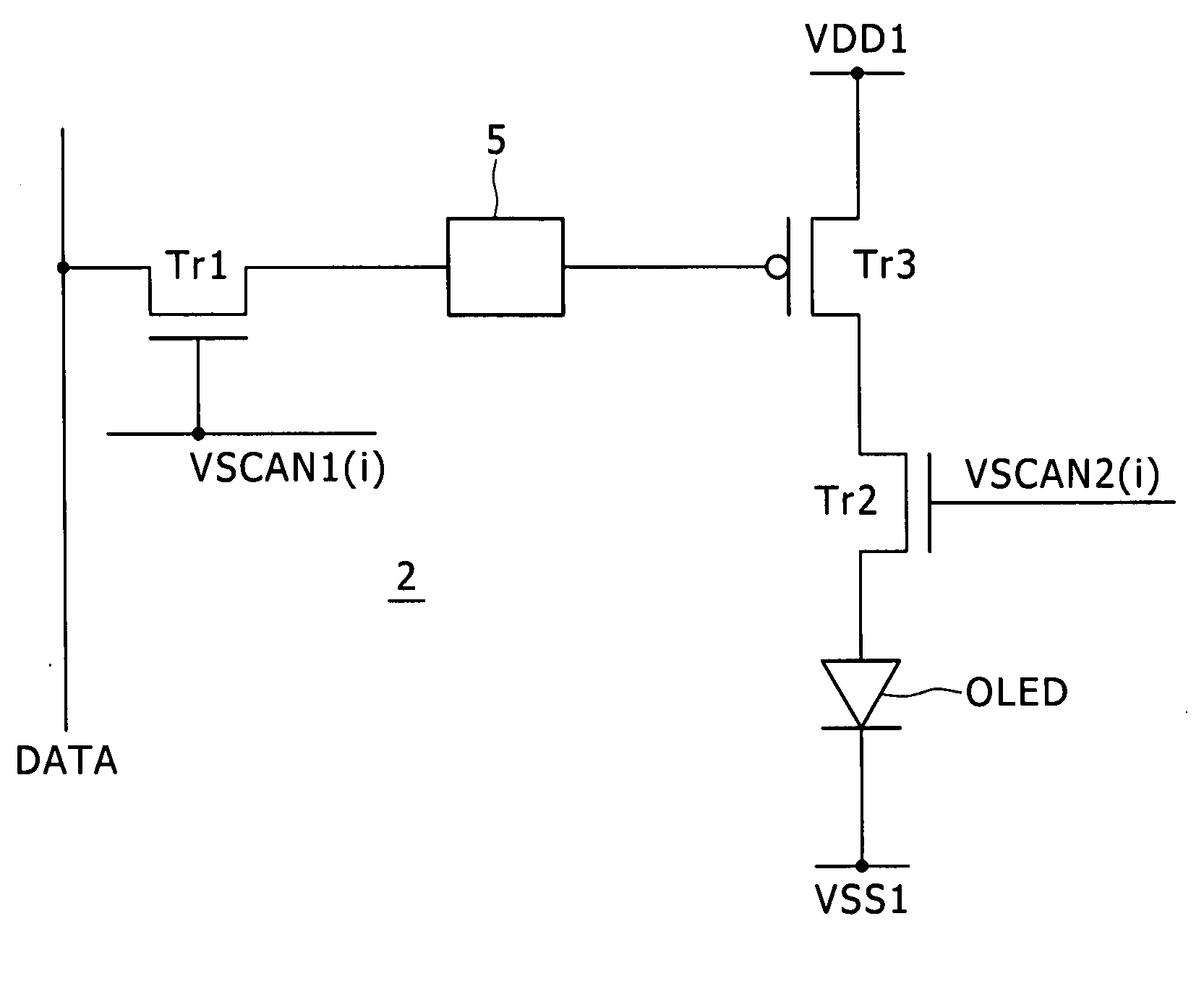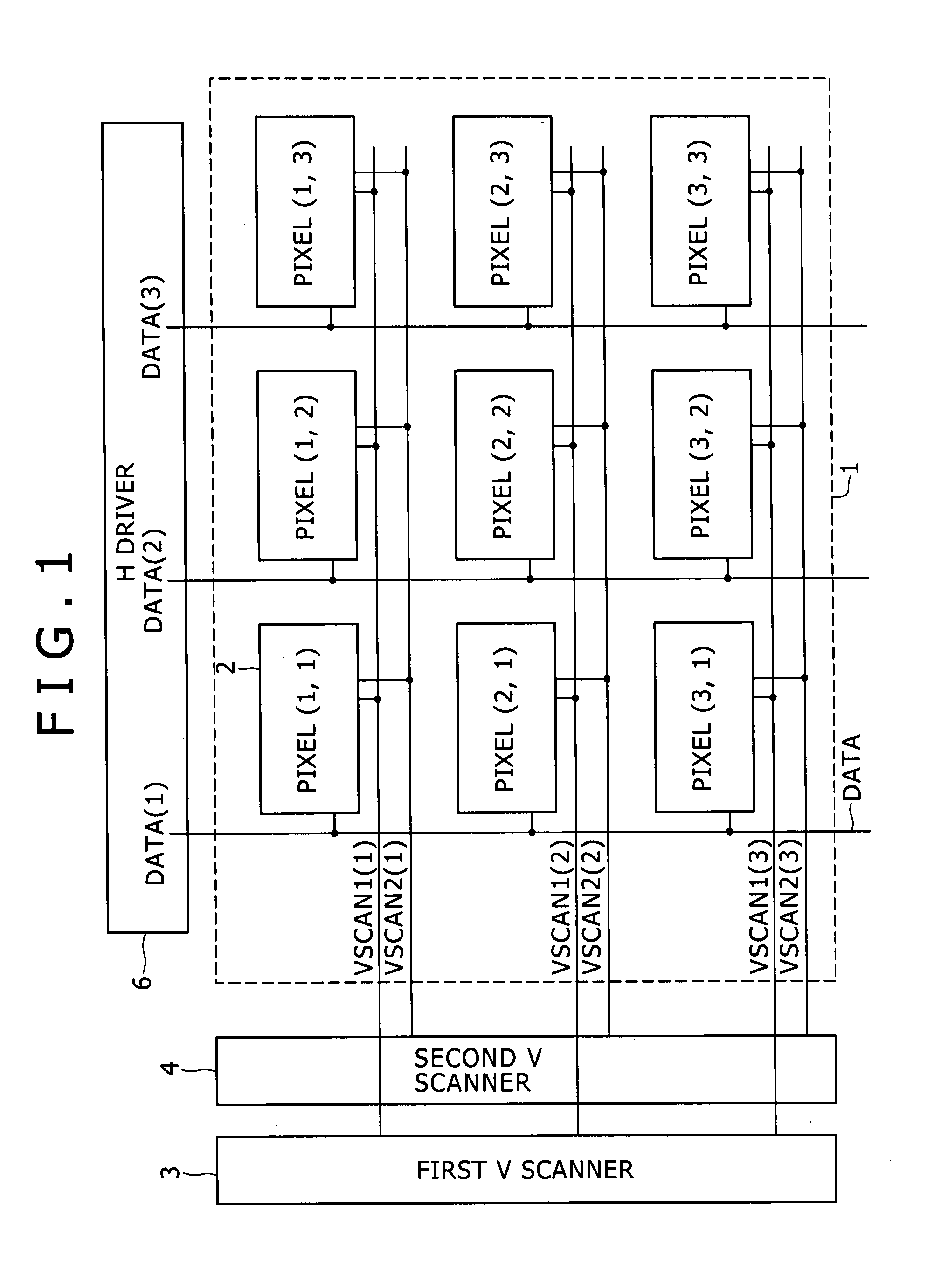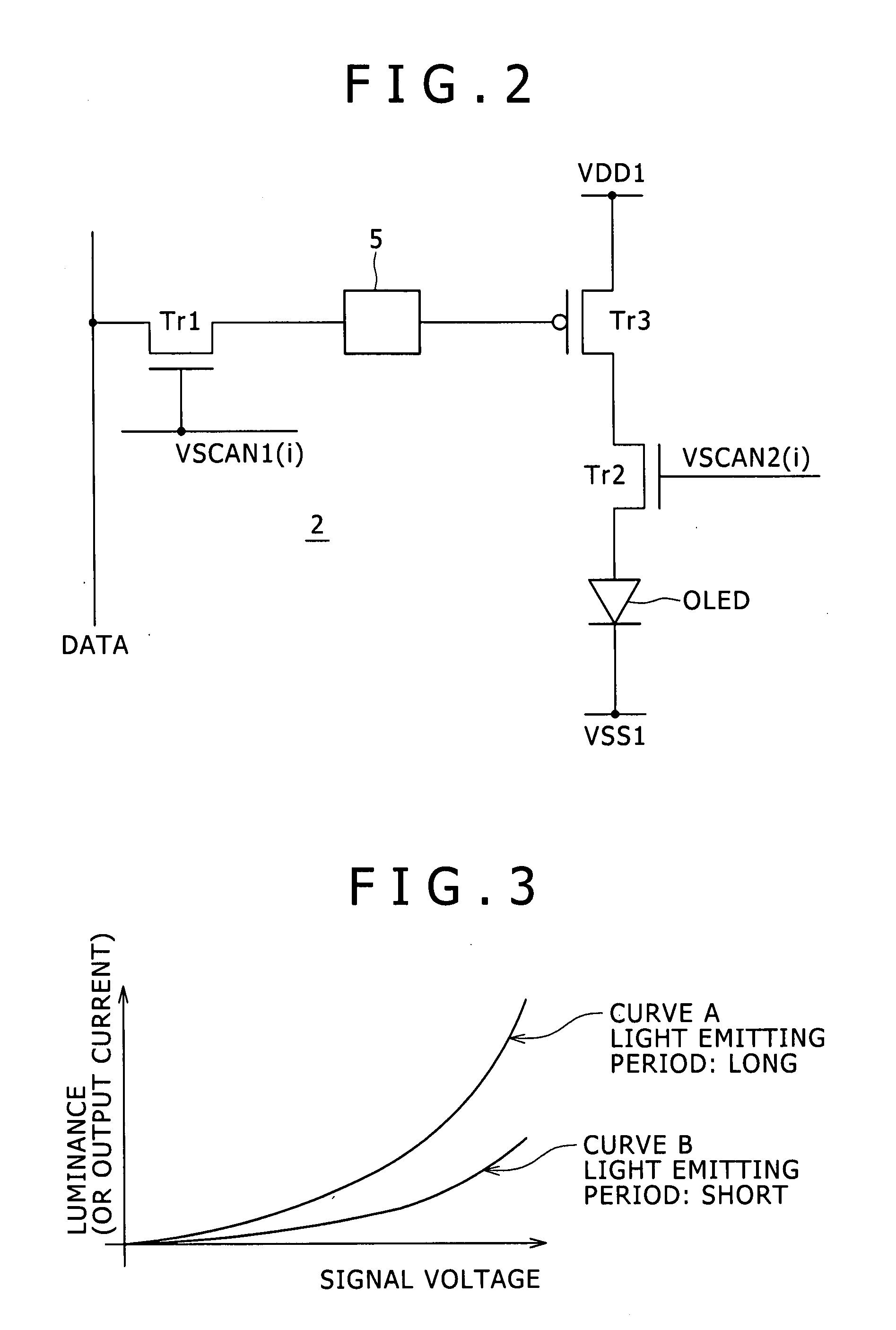Image display apparatus
- Summary
- Abstract
- Description
- Claims
- Application Information
AI Technical Summary
Benefits of technology
Problems solved by technology
Method used
Image
Examples
Embodiment Construction
[0023] Referring to FIG. 1, there is shown a general configuration of an image display apparatus to which the present invention can be applied. The image display apparatus shown includes a screen 1. The screen 1 is formed from a set of pixels 2 disposed in rows and columns. Each of the pixels 2 is formed as a pixel circuit whose position is specified by a combination of a row number and a column number placed in parentheses. A V scanner for carrying out line-sequential scanning is disposed on a peripheral side of the screen 1. In the image display shown in FIG. 1, the V scanner is divided into a first V scanner 3 and a second V scanner 4. Meanwhile, an H driver 6 for supplying an image signal is disposed on an upper side of the screen 1.
[0024] In addition to the pixels 2 described above, scanning lines VSCAN and signal lines DATA are formed on the screen 1. The scanning lines VSCAN extend along a direction of a row and successively supply a control signal in synchronism with a hori...
PUM
 Login to View More
Login to View More Abstract
Description
Claims
Application Information
 Login to View More
Login to View More - R&D
- Intellectual Property
- Life Sciences
- Materials
- Tech Scout
- Unparalleled Data Quality
- Higher Quality Content
- 60% Fewer Hallucinations
Browse by: Latest US Patents, China's latest patents, Technical Efficacy Thesaurus, Application Domain, Technology Topic, Popular Technical Reports.
© 2025 PatSnap. All rights reserved.Legal|Privacy policy|Modern Slavery Act Transparency Statement|Sitemap|About US| Contact US: help@patsnap.com



